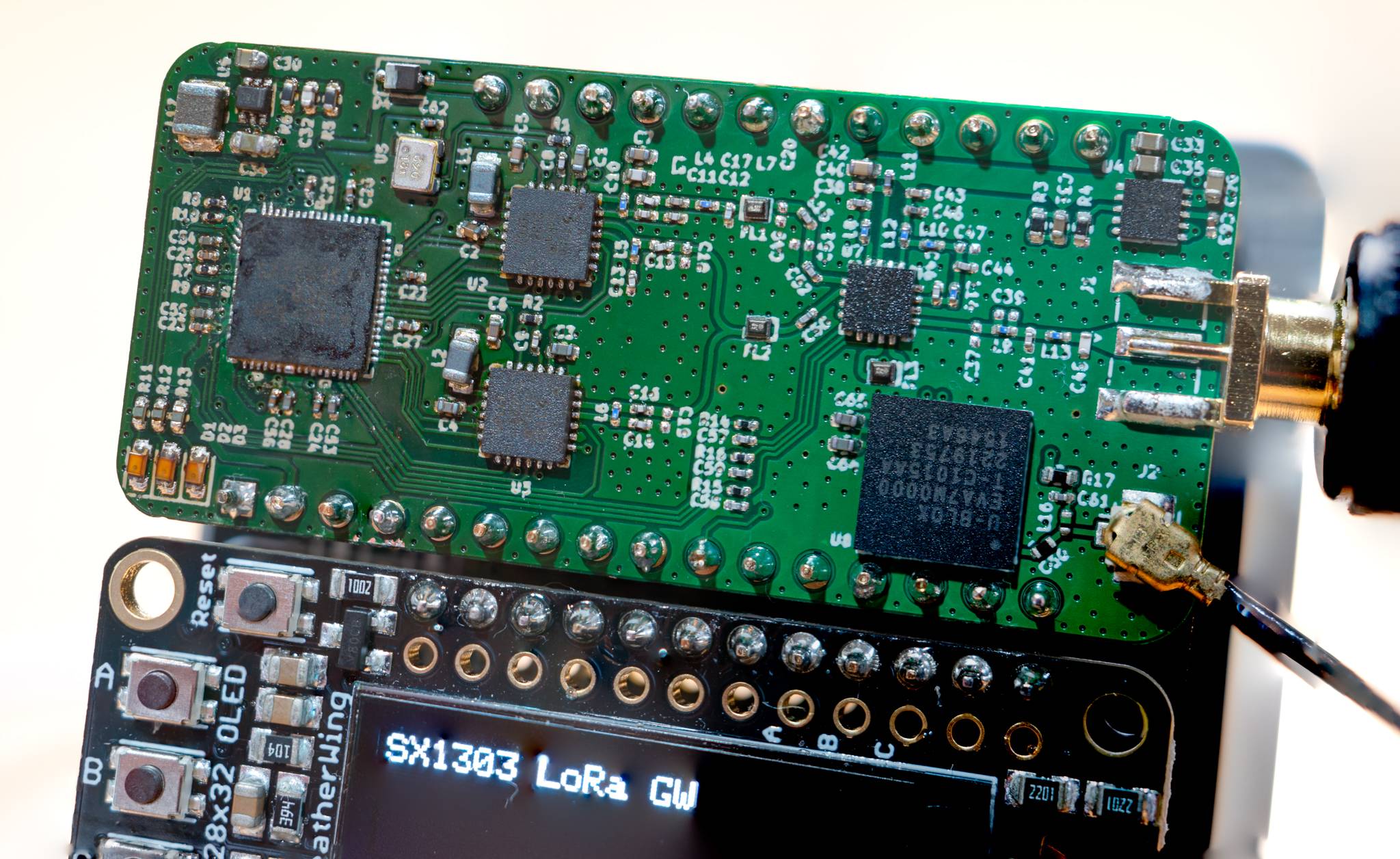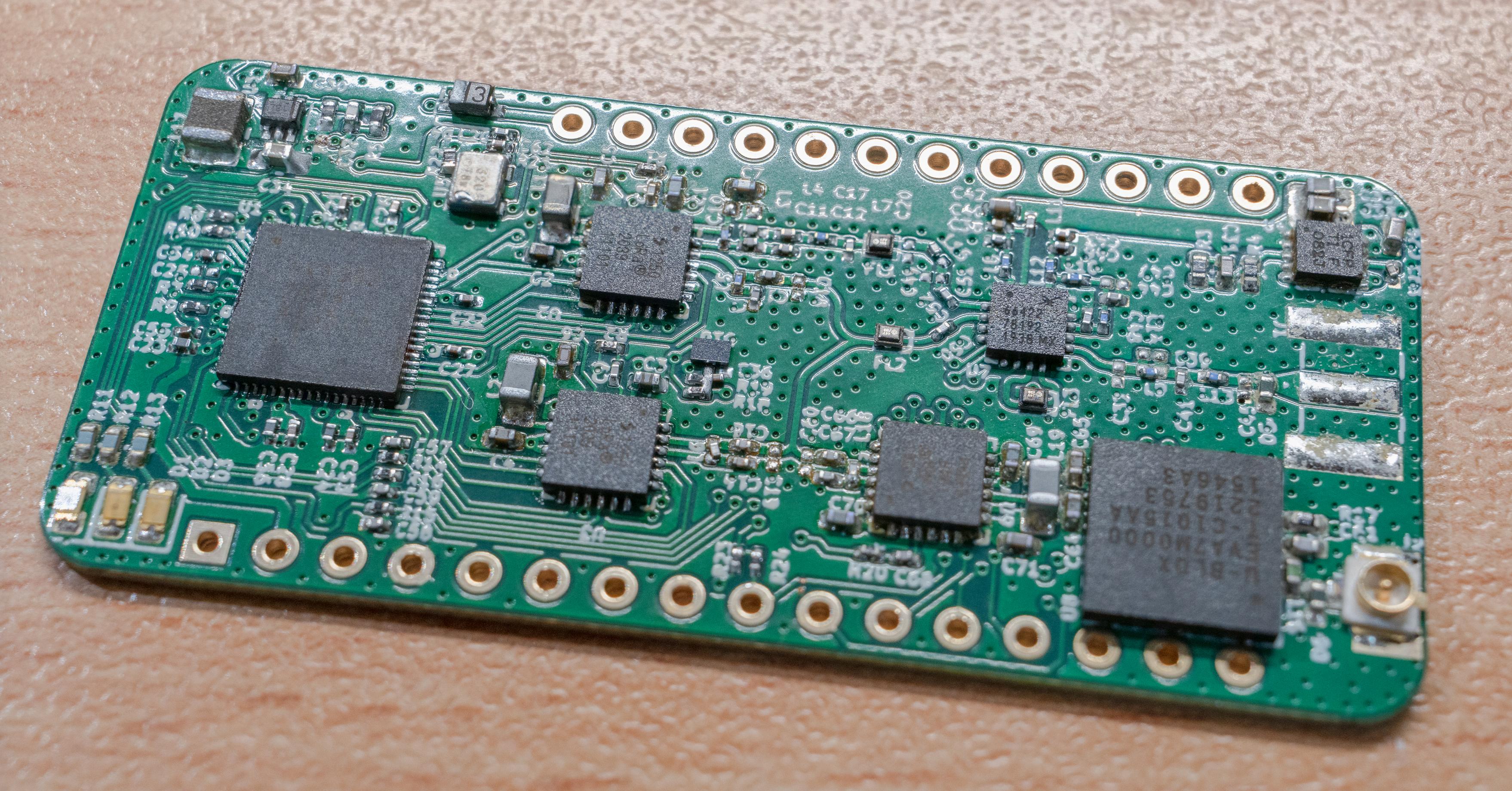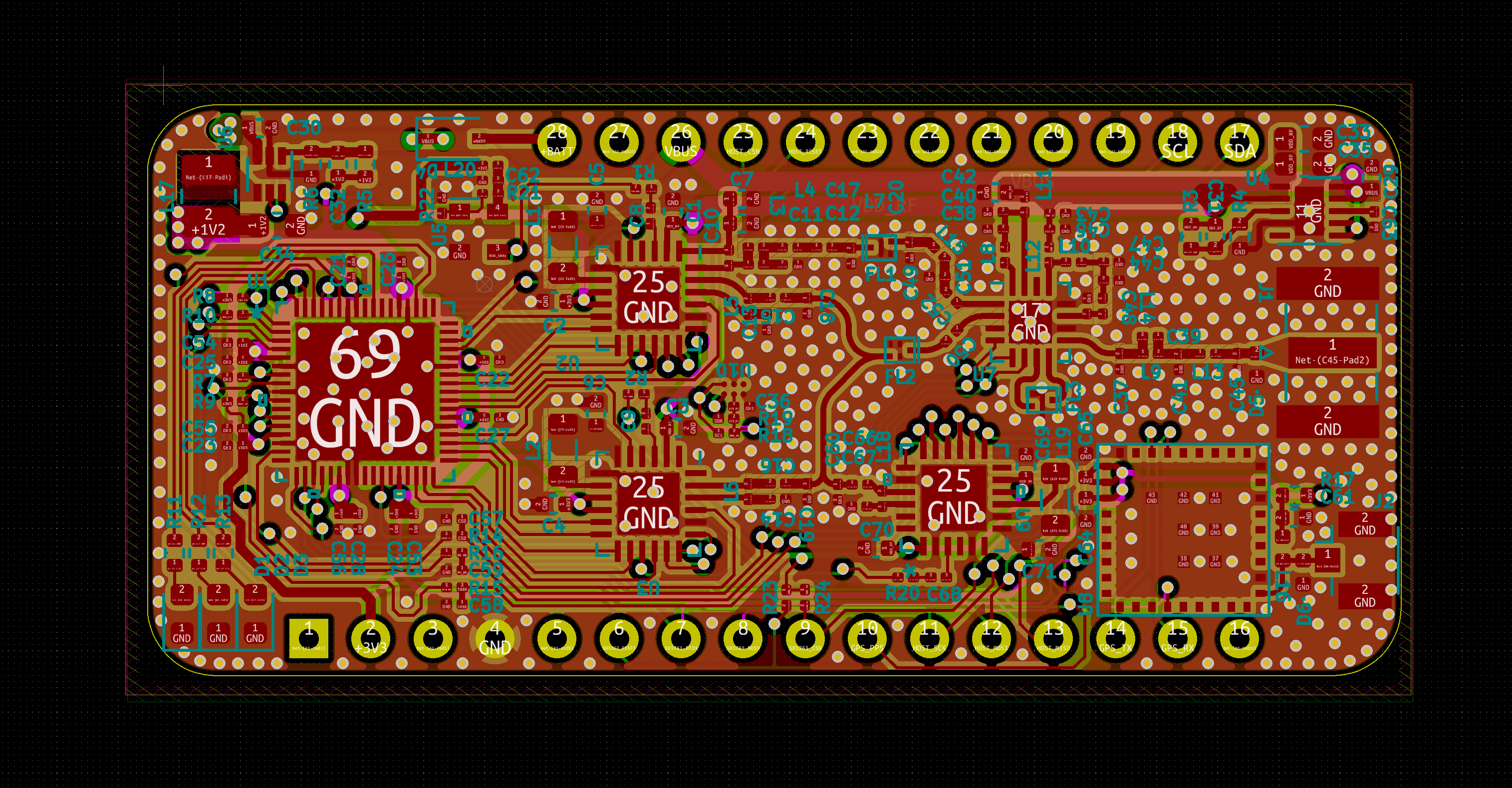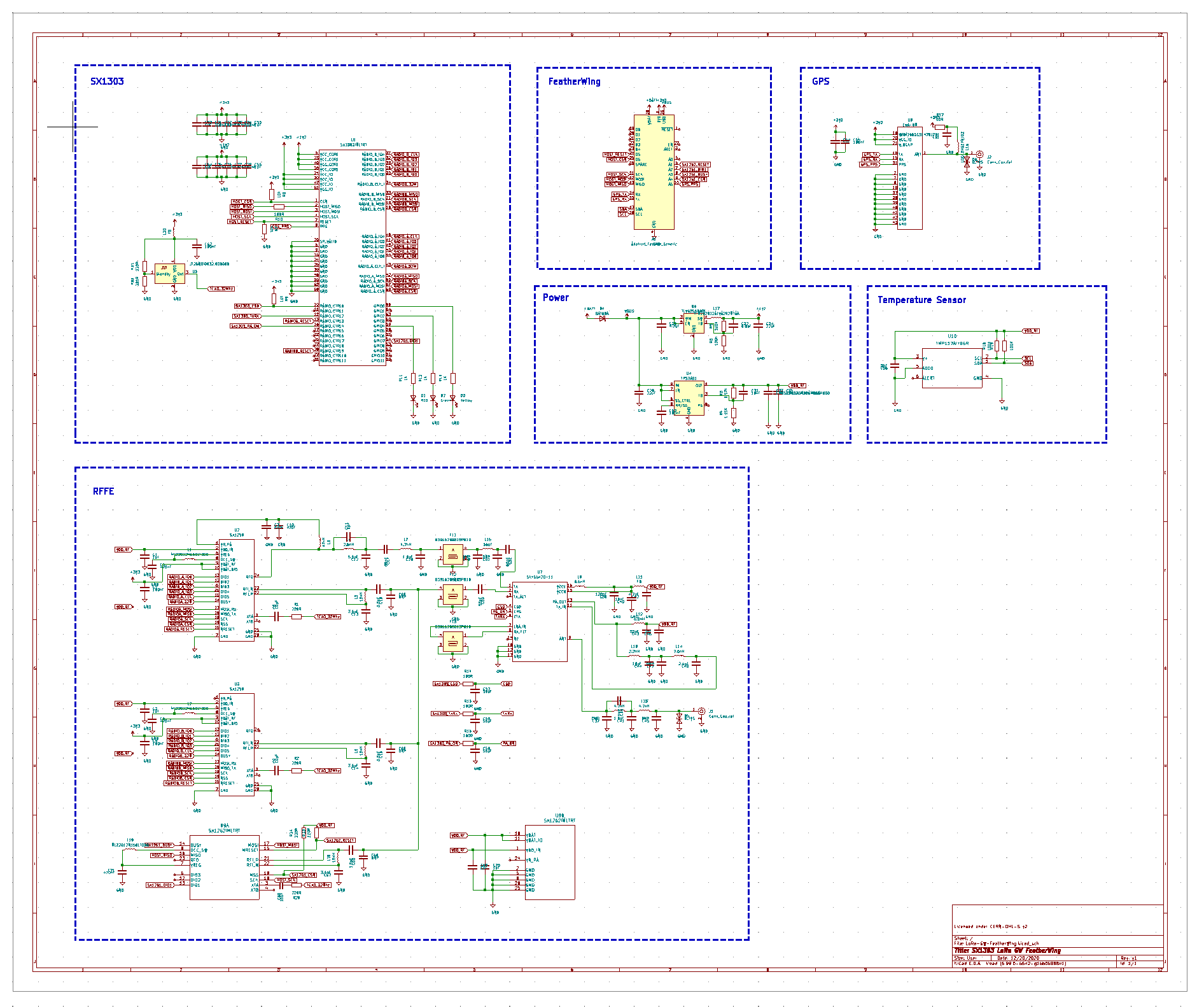Hi everyone,
Four years ago I designed a Opensource LoRa GW Hat for Raspberry Pi and later Raspberry Pi Zero: Fourm Link
I always want to build a gateway with Arduino-ish MCU, but SX1301 or SX1308 doesn’t really make sense because the power consumption for the chipset itself is crazy enough, using a MCU or Raspberry Pi as host doesn’t make significant difference by Maker point of view.
With the newer gateway chipset released from Semtech, I regained the interest to build another gateway board, this time finally for MCU.

The Hat-ish board layout I choose is Adafruit’s FeatherWing, it’s getting a lot of interest not only Adafruit but also other company for their dev. And most importantly Adafruit has a lot different MCU Feather board itself, so it is a pretty well used standard.
The image you saw earlier is a pretty standard GW, based on SX1303 reference design, a SX1302 or SX1303 with two SX1250, a RF FE for RX/TX/Switch and a U-blox EVA-7M providing PPS to SX1302.
But for some reason I started to wonder if I can squeeze additional component for LBT, and after a couple hours of dragging the components around, I added a SX1261 for LBT, and also a TMP107 for temperature sensing on board.

No hardware is usable without the software, and thankfully Semtech’s HAL is pretty portable, so I moved it to Arduino based HAL library: https://github.com/will127534/SX1302_Arduino_Library
The design tool also moved to KiCad, I can’t withstand the pricing for Eagle Cad, and I need at least 4-layers for these kind of projects.


For those who are interested, here is the Github link for the project: https://github.com/will127534/LoRa-GW-FeatherWing
*Note that LBT version is on different branch.
I would guess some people might be interested purchasing the board, but with the current chip shortage (I can’t even find the LDO in stock…) and personal reasons, the fastest way to get it is building your self. The PCB board is manufactured by JLCPCB, and most component you can source them from Mouser (Of course you need to hope there are in stock…). Lastly as a opensource project, you can always take it and modify yourself.
It has been some time working on this project, but I think someone might be interested designing your gateway, and I hope this post will help.